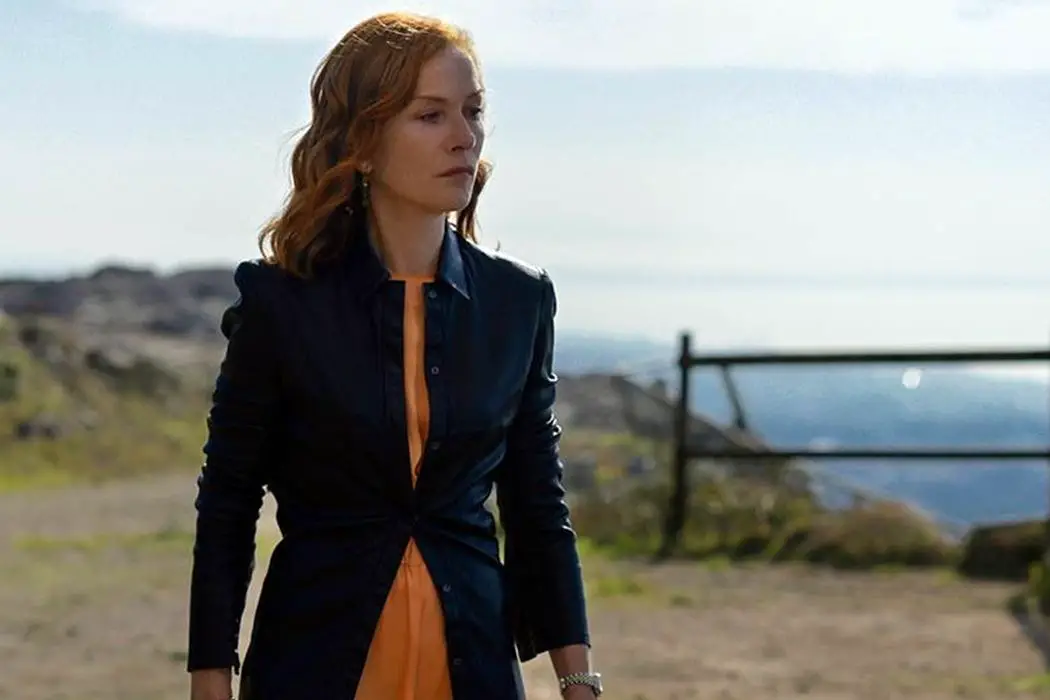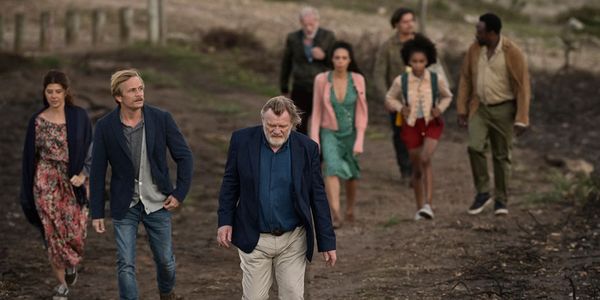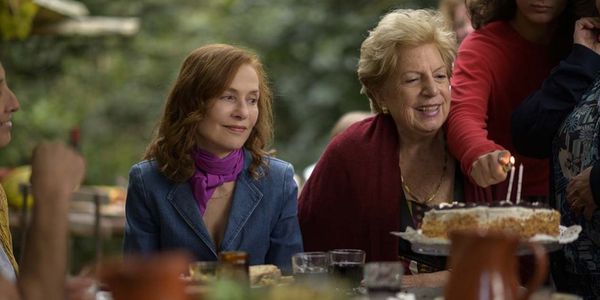FRANKIE: To Live & Die In Portugal

Soham Gadre is a writer/filmmaker in the Washington D.C. area.…
Death is the only inevitability. Ira Sachs’ Frankie has Isabelle Huppert in the titular role confronting her own mortality through a cancer diagnosis and on a ticking clock. An actress winding down her career, she invites her family to an oceanside getaway in Portugal where they traverse the villages, the beach, and the medieval churches and tombs.
Her passive narcissism, a trait that she wields like the heralded thespian she is, is consistently at odds with the fact that she knows she is going to die and everyone else does too.
A Meeting of Past Ghosts
With the release of The Irishman, Martin Scorsese also has acknowledged the end of roads, not only for himself but his friends and his cinema. The gathering of people who are important to Frankie is not just for a vacation, but a tying up of loose ends and an acknowledgment of ghosts of the past.
Along with Frankie are her husband Jimmy (Brendan Gleeson), her ex-husband Michel (Pascal Gregory), her two children Paul (Jérémie Renier) and Sylvia (Vinette Robinson), and Danielle’s husband Ian (Ariyon Bakare) and daughter Maya (Sennia Nanua). A few unexpected guests also arrive in the form of Frankie’s friend Irene (Marisa Tomei) and her not quite completely plutonic cinematographer friend Gary (Greg Kinnear).
For some, Frankie is a remnant of the past, but for others, like DeNiro is to Scorsese, she is the final chapter. “There is no after Frankie for me,” remarks Jimmy when Michel talks of his relationships post-marriage.

The mere existence of both of Frankie’s exes in the same place suggests she wishes for them to work it out. She also wants her son Paul to finally settle down following his breakup. Sylvia and her family are going through their own complications. Much of the discussion of sex and love in the film is tied with adultery and the relationships all are on a knife’s edge.
No Time for Bull
Late-career Clint Eastwood consistently puts himself in dangerous situations as a man with nearly nothing to lose. It is both a reprieve of his past career highlights (an invincible gunslinger) and a man facing his own mortality in the face and saying “you feel lucky?” Isabelle Huppert plays an actress at the end of her career, but the prospect of loss here is palpable.
Frankie isn’t melancholy about her own death as much as she is irritated by it. She tries to fend off worries at every turn as a defense mechanism, rebuking the metaphysical discussions her husband gets into with the tour guide who is eager to tell them of the myths behind ancient fountains and archaic monoliths and the prospects of healing and good luck. Frankie is fully concentrated on what is happening only at the moment she is in. She doesn’t have time for the future.
Sachs gives Huppert the freedom to carry his scripted words any which way she chooses. In a conversation with Gary who passively asks Frankie to collaborate with him on his first feature film (he has just finished being the lead DP for the new Star Wars film), Frankie is automatically annoyed. She says Irene is one of her best friends because she doesn’t have time for bullshit. It’s a veiled shot. Huppert channels herself in her character in these moments and communicates passive-aggressiveness the way great actresses know how. Just a look from her in the direction of another person can easily tell if she wants anything to do with them.

If Sachs’ film has a major flaw it’s that it plays through its characters’ life events like a matter-of-fact photo reel. There isn’t much introspection here other than bated sighs and long looks. The multi-generational look at stages of life is similar to Hong Sang-soo’s Grass but Hong’s keen observations and melodramatic theatrics are replaced by a very Euro-American subtleness that strips the film of emotional weight and instead leaves it simply somber. It makes sense then that Sachs chose the visual distraction of a scenic vista in Portugal, while Hong, a much more talented writer and excavator of psyches, filmed his entire movie from the inside of a coffee shop in black-and-white.
Frankie remains somewhat inspired even if it doesn’t quite stimulate the imagination. A lot of the characters in the film seem picked out of casts from other filmmakers who have influenced Sachs’. Gary and Irene mirror Woody Allen characters of the past, Frankie and her husband seem picked straight from an Olivier Assayas film. Sylvia’s family could be straight out of Almodovar’s mind. This concoction of upper-class artistic types culminates in an examination of intricacies in life and relationships that is stoic and humanist but doesn’t transcend relations down from its perched tower. These are not Bong Joon-ho or Ken Loach characters. They are pure Hollywood.
Frankie: Humanist Paintings
This group of mostly well-off individuals in a seaside Portuguese village makes for some light entertainment because of the drama that fills their lives, but there isn’t much sympathy being evoked here, nor should there be. It may be unfair to say that because all of Sachs’ characters are wealthy and connected in wealth with the entertainment industry that they don’t or can’t experience the same sort of losses and despair that regular folks do. The subdued way in which they speak and the complete lack of introspection on any of their parts make it more than obvious that they are in fact self-consumed rather than a real family unit.
The final scene of the film is a lengthy still shot of them all climbing a hill. Once they get to the top, they are spread out, in their separate cliques, far away, with no connection or conversation. As they then, piece by piece, make their way down, they don’t cross paths. They go as they came.
Frankie was released in theaters in the United States on October 25th, 2019.
Does content like this matter to you?
Become a Member and support film journalism. Unlock access to all of Film Inquiry`s great articles. Join a community of like-minded readers who are passionate about cinema - get access to our private members Network, give back to independent filmmakers, and more.
Soham Gadre is a writer/filmmaker in the Washington D.C. area. He has written for Hyperallergic, MUBI Notebook, Popula, Vague Visages, and Bustle among others. He also works full-time for an environmental non-profit and is a screener for the Environmental Film Festival. Outside of film, he is a Chicago Bulls fan and frequenter of gastropubs.













